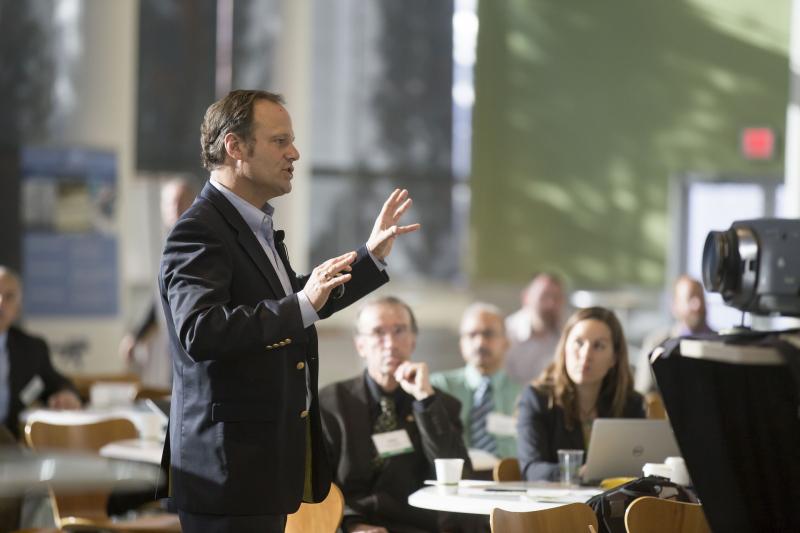Management training

”One of the difficulties of management is that those we lead can only proceed as we do. By fully exploiting our inherent opportunities we can create an atmosphere where others can also realise their full potential.” John c. Maxwell.
A milestone in a judge’s career is the filling of a managerial position. Just like in many other countries, judges in Hungary will, in due course, become judiciary managers although up until then they only strived to be ”good judges”. Nevertheless, both they and their colleagues come to realise that often time the role of a „good manager” requires other competences. Just one example: in terms of citizens seeking justice who enter the courtroom for the first time in their lives, he/she as a judge must build the atmosphere of trust just as he/she (already as a manager) must do the same among his/her colleagues while facilitating a meeting. However, these two situations require complete different communication tools and strategies to be successful.
During the last decade the courts all over Europe realised that their managers require specific training, and even the European Judicial Training Network (EJTN) has been dealing with this subject since 2015 and the representatives of the National Office for the Judiciary also participate in their work.
NOJ was one of the first bodies to provide managers with complex training.
- In 2016 the presidents, vice-presidents, team leaders and deputy team leaders of the district courts(a total of 203 persons)
- in 2017 of a total of 97 division leaders, their deputies and regional division leaders,
- in 2018 the presidents and deputy presidents of general courts and the courts of appeal (a total of 60 persons)
were trained in small groups.
 In 2019, yet again, the programme will focus on the target group of district court leaders.
In 2019, yet again, the programme will focus on the target group of district court leaders.
These training courses address three management competence areas. There will be strong emphasis on the development of managerial soft-skills: managerial self-awareness, communication, motivation and stress management skills, strategy development, complex thinking, time and change management. In addition, participants can also acquire practical and interactive administration-technology and administration-IT knowledge to help their daily work.
Soft skill training courses tailored to the needs of the judiciary organisation were provided by external experts but the Judicial Coach Trainer Network comprising judicial employees has also been set up. So, following a complex and specific train-the-trainer course series and after a lot of practising, the workshop leaders are really the colleagues who know the organisation best.
The objective set upon the planning of the course was attained. Based on feedback provided by participants, it is obvious that this really was an experience based empirical learning process with intermittent professional discussions. The participants actively and enthusiastically participated in the processing of the specific subjects such as the giving of feedback for development purposes or the conducting of a challenging meeting. A lot of feedback was provided to the effect that management techniques learned here were already used and successfully applied in real judiciary context.
 The training provided participants with a unique opportunity to share their personal experiences, increase their awareness and widen their managerial toolkit in a friendly, inclusive and supportive social environment. That is, by developing individual competences, we can develop the entire organisation through the community building effects of training.
The training provided participants with a unique opportunity to share their personal experiences, increase their awareness and widen their managerial toolkit in a friendly, inclusive and supportive social environment. That is, by developing individual competences, we can develop the entire organisation through the community building effects of training.
Both the training programme and the concept are being improved on an ongoing basis: last year the National Office for the Judiciary organised inspiring induction training courses for potential future managers and programmes aimed at the entire managerial team and all management levels of certain general courts are now also available in which joint responsibility and team building may become even more pronounced.